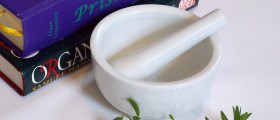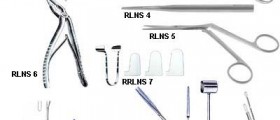
Cases of sinus infections can be treated with homeopathic remedies. For acute sinusitis, it is recommended to use preparations several times a day, for few days. Homeopathic remedies can be used with the other medications for this condition.
Chronic and persistent cases of sinus infection are treated with these remedies for a week or two, and then stopped. This cycle may be repeated if necessary. There is a possibility that the treatment causes worsening of the symptoms. You shouldn’t be worried, for these are just steps to complete recovery from sinusitis.
Remedies
It is advisable to find a proper homeopathic therapist, to suggest the appropriate herbs for your condition and monitor the response to the remedy used in the treatment.
The most commonly used homeopathic remedies for sinusitis treatment are the following:
1. Hepar sulph. is used in patients which have sinusitis that release thick, smelly and yellowish-green mucus. These patients often sneeze, experience nose blockage when exposed to cold air, and have often nosebleeds. Their nose and sinuses are swollen and highly sensitive to touch. There is pain in the nostrils and sinuses. Sometimes, patients experience loss of smell. Psychologically, these people are often bad tempered, and suffer from chills on the body. Cold, draft, wind and atmospheric pressure changes usually worsen the symptoms, while warming up improves the condition. 2. Hydrastis is used when patients experience unpleasant, watery mucus that can even have traces of blood. They have burning sensation in the nose and sinuses, always blowing their noses and often experience frontal sinus headaches. Blowing the nose often relieve the headache in these patients. Normal breathing, cold air, wind and the night time make the symptoms much worse. If the patient applies the pressure on the infected sinuses the symptoms improve. 3. Kali bich is recommended to be used in cases of intensive pain and pressure along the sinuses and nose, often associated with cold and cough. The worst affected are the cheeks and root of the nose. Some of the patients experience loss of smell or voice changes. Damp, cold air and beer are making the symptoms intolerable, and the pain is strongest in the early morning. Warming and pressure on the sinuses relieve the symptoms. 4. Mercurius is used in patients that have problems mainly with frontal sinuses. The mucus of these patients is thick and smells unpleasantly. The tongue is grayish and patients feel metallic taste. They also sneeze a lot and have frequent nosebleeds and colds. These patients sometimes experience memory weakness. Symptoms are worse during the night and extreme weather conditions, both hot and cold. Patients don’t like to be touched, and don’t like damp, draft and cloudy weather. 5. Pulsatilla patients feel persistent pain along frontal and upper jaw sinuses. Mucus is thick, nose feels completely full and they lose sense of smell. Their eyes appear red and tearful. These patients are grumpy and temperamental or emotionally dependant on other people. Condition get worse with cold air, if the person eats much or eats oily food. Symptoms tend to progress to the evening. Fresh air seems to be good for these patients. 6. Silicea is used whenever sinusitis is provoked by frequent colds or allergic reactions, in chronic cases and in patients with extremely low immunity. Patients have thick mucus, yellow colored, and they usually suffer from ulcers in the nose. Usually, all the glands on the body are swollen, and their sweat has certain sour smell. Damp, draft and cold worsen the symptoms and warming up improves the condition.
Additional Advices
Quit smoking and avoid smoking or dusty areas.
Drink enough fluids.
Use warm compresses to relieve the symptoms.

















Your thoughts on this
Loading...